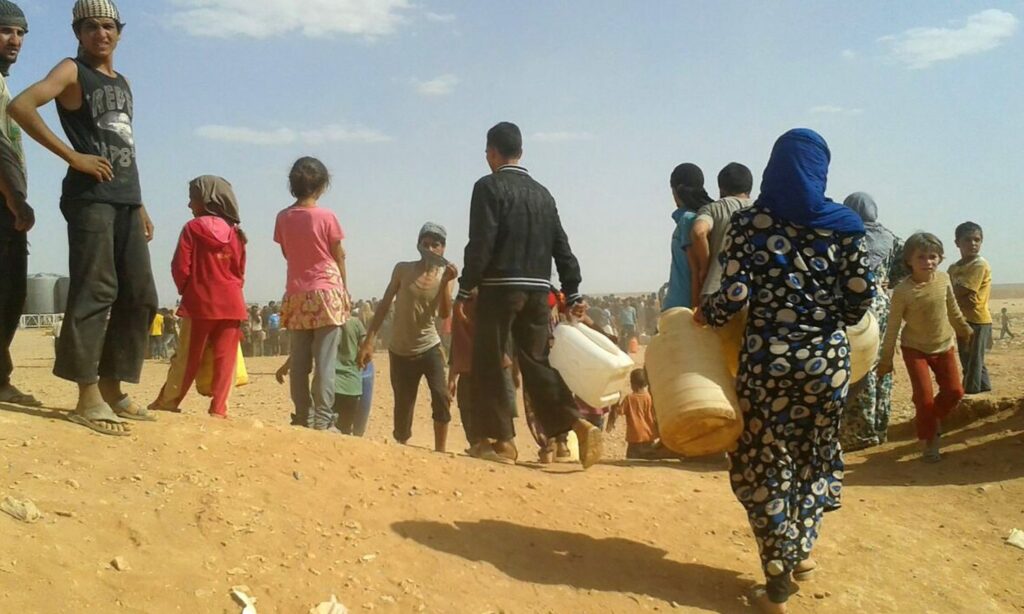Mahmoud al-Shihab, a resident of the Rukban camp on the Syrian-Jordanian border, lost 15 of his home-bred chickens after they contracted the Newcastle disease.
Al-Shihab told Enab Baladi that the epidemic hit chickens in the Rukban camp in December 2023, leading to the death of a large number of chickens, resulting in dozens of birds perishing among most of the families in the besieged camp.
Newcastle disease is a highly contagious respiratory illness similar to avian influenza and affects poultry and birds in general. It is transmitted through direct contact between birds or through bird droppings, or contaminated water and food.
A camp under siege
The Rukban camp on the Syrian-Jordanian border is under siege by Syrian regime forces, which forces residents to obtain food supplies through smugglers from regime-controlled areas.
The siege has pushed residents to seek self-sufficiency through the cultivation of vegetables or the rearing of chickens to secure eggs and meat.
Jassem al-Zahri, 45, a camp resident, told Enab Baladi that home-bred eggs save him from buying eggs from the market inside the camp, with the price of a box of eggs reaching 65,000 Syrian pounds.
Meanwhile, Ahmed al-Homsi, a camp resident, told Enab Baladi that the pandemic affected most of the birds inside the camp. Previously, residents relied on home breeding to secure their needs for eggs and chicken meat, saving them the cost of purchasing.
He added that the camp is under a tight blockade imposed by regime forces, so the residents of the camp are striving to secure self-sufficiency from meats, eggs, and vegetables.
Vaccine unavailable
The siege by regime forces has led to a shortage of vaccines for viruses and diseases, forcing camp residents to resort to alternative methods.
Jassem al-Zahri, one of the residents, uses human antibiotics dissolved in chickens’ drinking water as a means to protect from catching the disease, but it has not been effective due to the high mortality of chickens in the camp.
Some resort to more primitive methods, such as crushing garlic and onions and mixing them with drinking water, according to Mahmoud al-Shihab, which also proves ineffective.
The chickens need a vaccine available in regime-controlled areas that protects the flock from transmission of the infection if used before the virus is contracted.
Fowl plague hit areas under the control of the Syrian regime and caused the death of a large number of birds, reaching between 70% to 80% of the chickens, according to a member of the Poultry Breeders Committee, Hikmat Haddad, in statements conveyed by the Al-Baath newspaper, on November 28, 2023.

